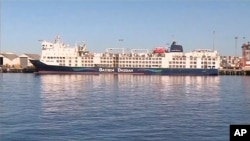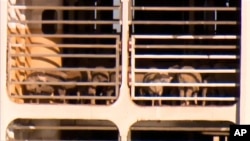The MV Bahijah sailed from Fremantle, Western Australia on January 5 for Israel with about 14,000 sheep and 2,000 cattle on board, but diverted from its route due to the threat of attack by Yemen's Houthi militia before being ordered home by the Australian government.
Animal rights advocates and some politicians have branded the treatment of the livestock on the ship as cruel, but the government and industry say they are in good condition.
The government last week rejected an application by the exporter to ship the animals to Israel around Africa, a nearly five-week journey that would have extended their time on board to more than two months.
"All livestock from the vessel MV Bahijah will be discharged commencing from Monday 12 February 2024 and taken by truck from Fremantle Port to appropriate premises in Western Australia," the agriculture ministry said.
It said the unloading would take several days and the animals would be quarantined according to Australian biosecurity rules while the exporter, Israeli company Bassem Dabbah, which owns the livestock, considered its options.
Four cattle and 60 sheep had died on the ship since it sailed, the ministry said, but it added that this was below reportable mortality levels.
Reuters was unable to contact Bassem Dabbah. The ship's manager, Korkyra Shipping, has not responded to requests for comment.
Most of the animals are likely to be re-exported after a short period on land, said Geoff Pearson at farm group WAFarmers.
Australia exported more than half a million live sheep and half a million live cattle last year.
The center-left Labor government has pledged to outlaw live sheep exports but faces angry pushback from farm groups who say this would put people out of work and destroy farming communities.











Forum